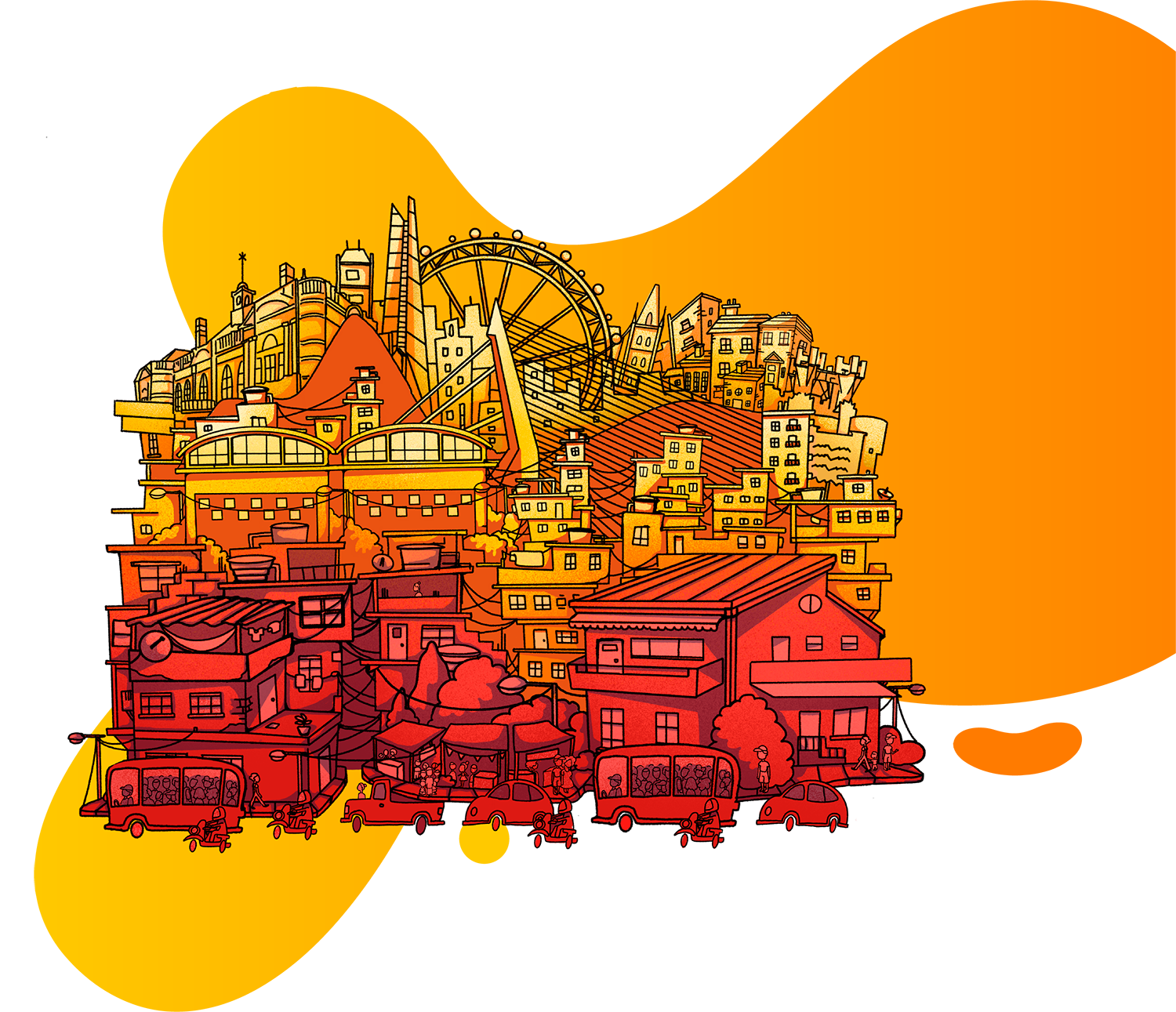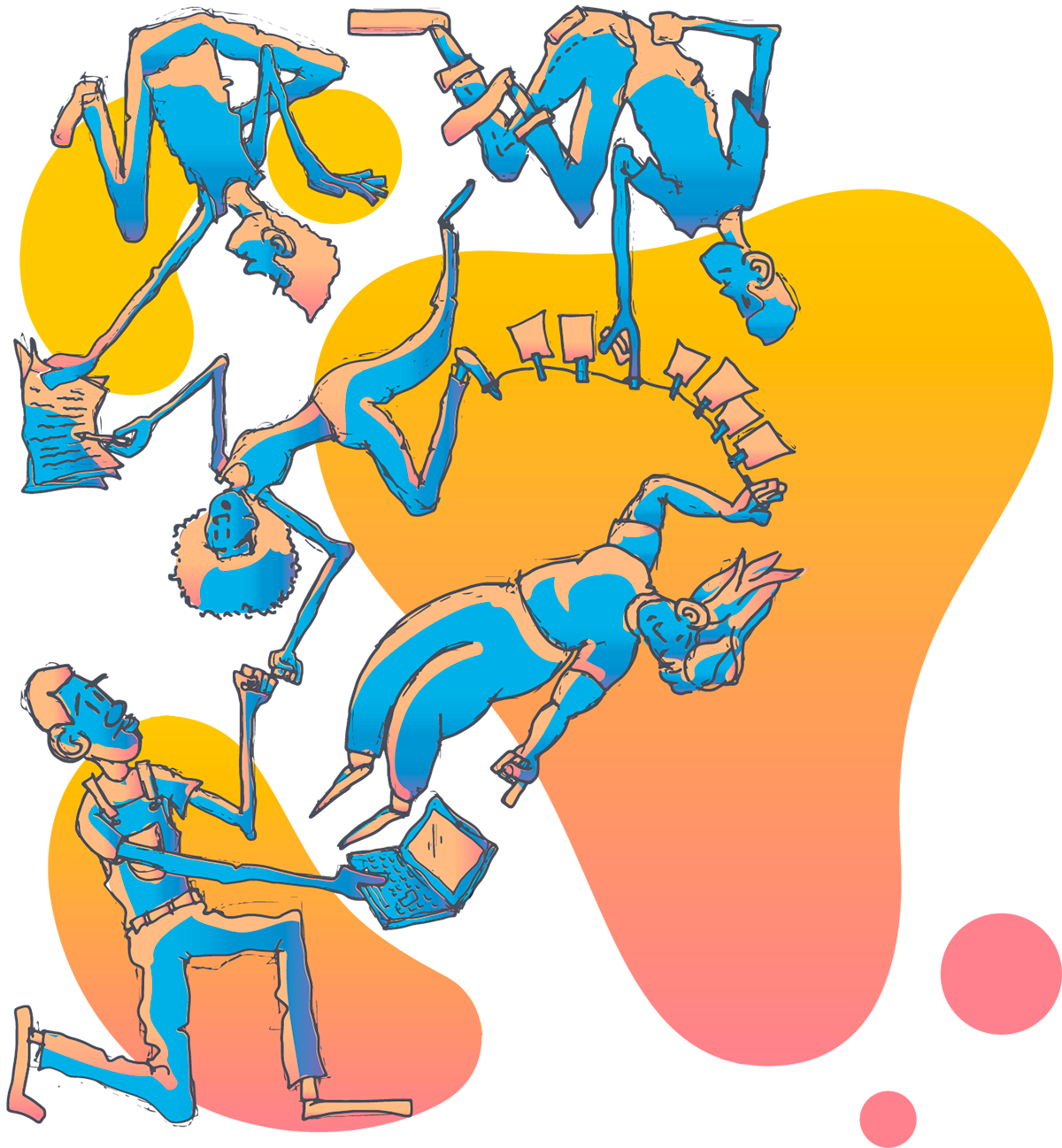

Our aims
Relative Values set out to construct a new narrative about the socioeconomic impacts generated by cultural activities, through co-creative research partnerships with arts organisations in Britain and Brazil.
Building on expertise from the arts and social sciences, we developed an interdisciplinary methodology, and, in collaboration, created multi-dimensional indicators so that creatives and cultural organisations can develop their research capacity and understanding, and articulate the cultural value of initiatives that seek to make real and transformational change within vulnerable territories. Together we developed an evaluation system to enable arts organisations to produce quantifiable socio-economic data evidencing the cultural value of their work.
For more information, go to Our Stories.



2016-2020: Development of the work
The research programme started in 2016 with Relative Values I, in which we co-created and tested 100 multi-dimensional indicators and gathered data from 400 young people in partnership with four major arts organisations: Agency of Youth Networks (Rio de Janeiro, Brazil), Battersea Arts Centre (London, UK), Contact Theatre (Manchester, UK), and Maré Centre for the Arts (Rio de Janeiro, Brazil). This work was funded through a grant from the Arts and Humanities Research Council.
Following the success of the prototype, we adapted the methodologies in two ways. Firstly, we piloted a training programme to enable emerging artists and producers from fragile contexts in Brazil to understand and produce evidence about the socio-economic impacts of their own creative interventions at a micro scale (Relative Values II, 2019, supported by AHRC through the Global Challenges Research Fund). Secondly, we partnered with the Brazilian cultural foundation Fundação Itaú Cultural to adapt the Relative Values methodology to assess the socio-economic impact of cultural initiatives in urban and rural territories across Brazil, supported by Brazil’s largest open-call funding programme, Rumos (Relative Values III, 2018-19).
Finally, in Counting Culture, we hosted a series of seminars on impact and the creative economy with policy makers, academic and cultural institutions in Glasgow, Manchester, Cardiff, London (2018-20) and Rio de Janeiro (2021). This activity was part of a British Academy Newton Advanced Fellowship grant to Leandro Valiati at QMUL.
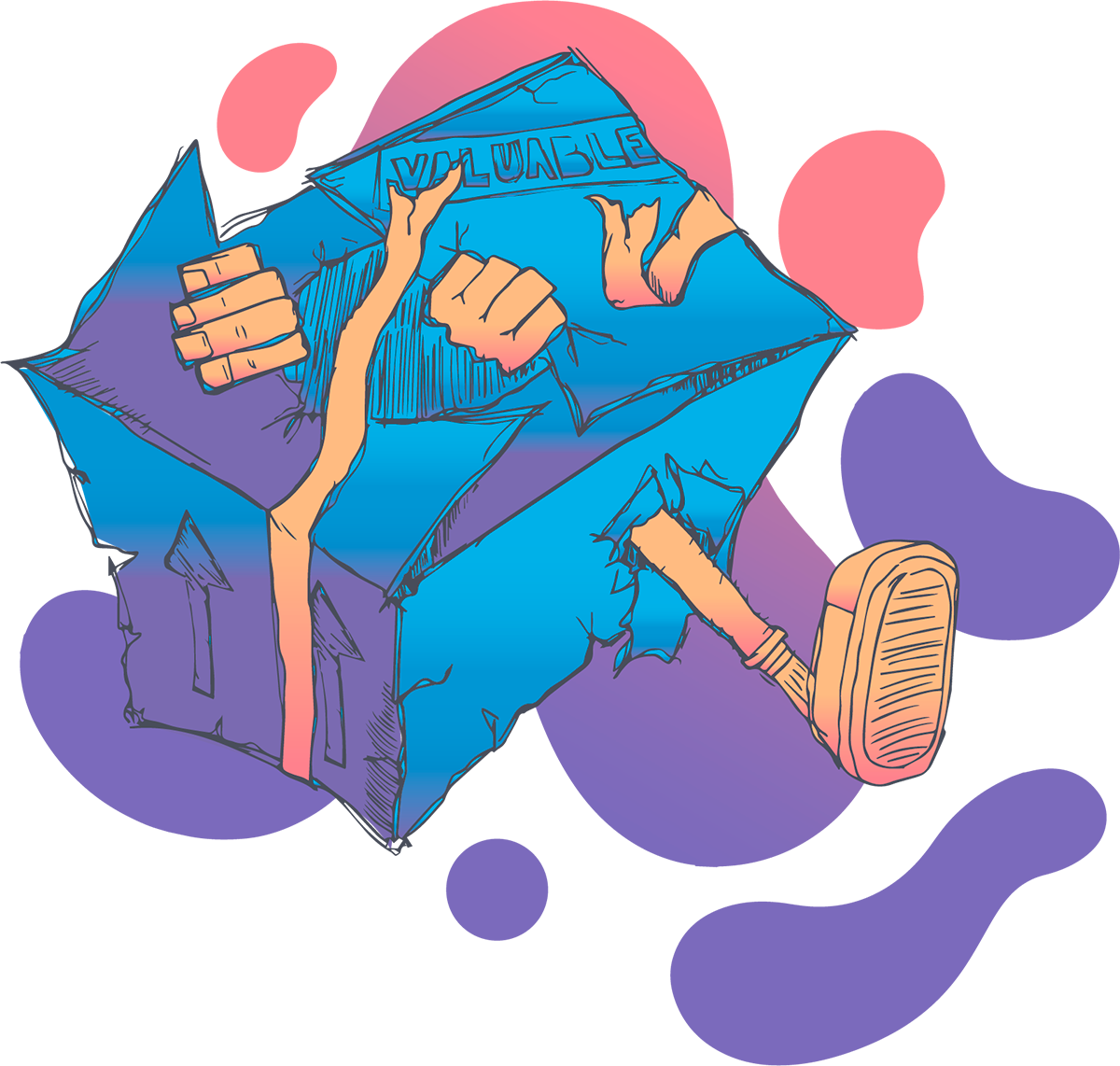

How does it work?
Our methodology enables cultural organisations, projects and artists to undertake qualitative and quantitative data about the socioeconomic value of their work. Bespoke, multi-dimensional indicators are developed according to each participant’s needs, and they are trained to collect, analyse and present their data to better communicate the socioeconomic value of their work.
For more information, you can access the Relative Values Toolkit here.
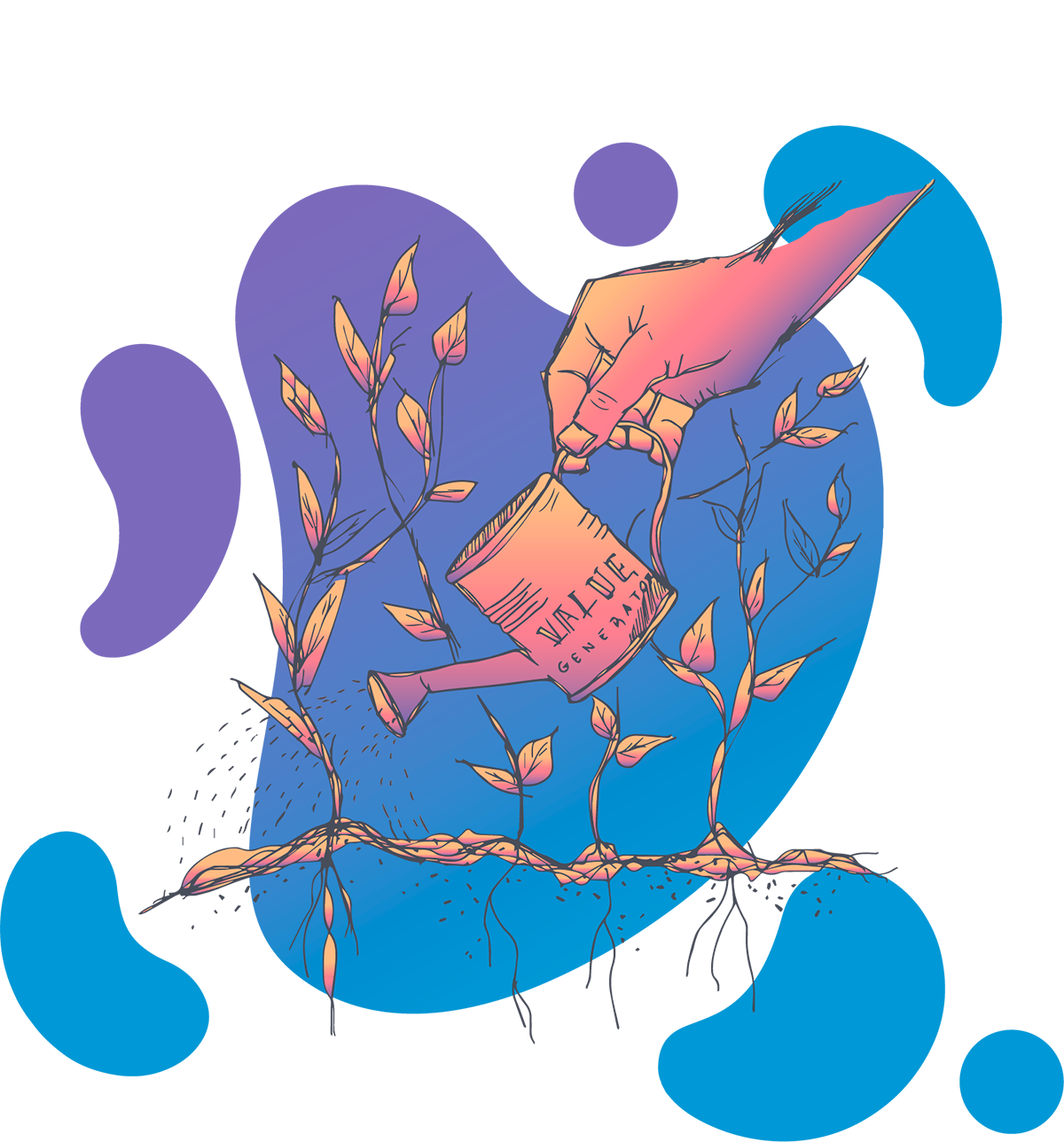


Who is working on it?
The research is directed by Paul Heritage and Leandro Valiati, and produced and managed by People’s Palace Projects at Queen Mary University of London, in partnership with the Centre for the Study of the Economy of Culture (NECCULT), Federal University of Rio Grande do Sul, Porto Alegre.
It has been made possible through collaborations with arts and cultural organisations in Brazil and the UK, including: Agency of Youth Networks (Rio de Janeiro, Brazil), Battersea Arts Centre (London, UK), Contact Theatre (Manchester, UK), and Maré Centre for the Arts (Rio de Janeiro, Brazil), and by support from Arts and Humanities Research Council (UK), British Academy (UK), Global Challenges Research Fund (UK), Newton Fund (UK), and Fundação Itaú Cultural (Brazil). Core funding from Arts Council England as a National Portfolio Organisation supports People’s Palace Projects in the delivery of all of its work.
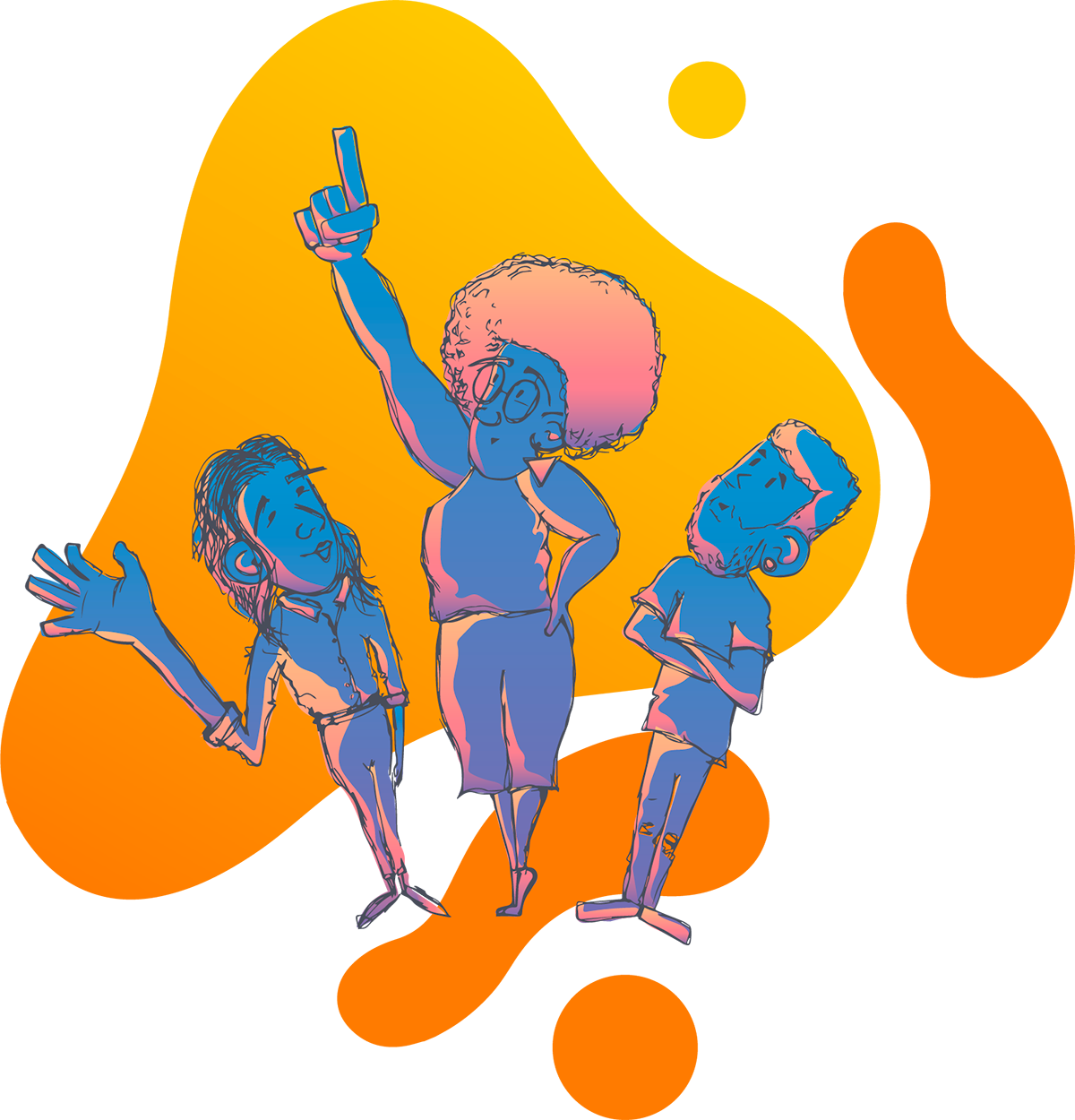

Why does it matter?
The impact of arts and cultural organisations on issues of socio-economic development – such as human wellbeing, social inclusion and diversity – have not been well evidenced. We need systematic approaches to measuring the impact of arts and culture on vulnerable territories to help us understand the value of creative practice beyond direct economic outcomes: in particular, how it can contribute to the equitable socio-economic development of marginalised communities.
The Relative Values methodology enables organisations ranging from major arts institutions to individual cultural producers to define their own multi-dimensional indicators and produce robust datasets about the broader impact of their practice, allowing them to refine their work and inform dialogue with policy-makers, public and private funding institutions.

